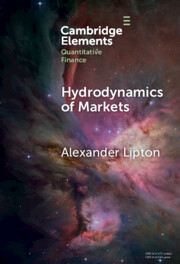Refine search
Actions for selected content:
1 results

Hydrodynamics of Markets
- Hidden Links between Physics and Finance
-
- Published online:
- 26 November 2024
- Print publication:
- 02 January 2025
-
- Element
-
- You have access
- Open access
- HTML
- Export citation
